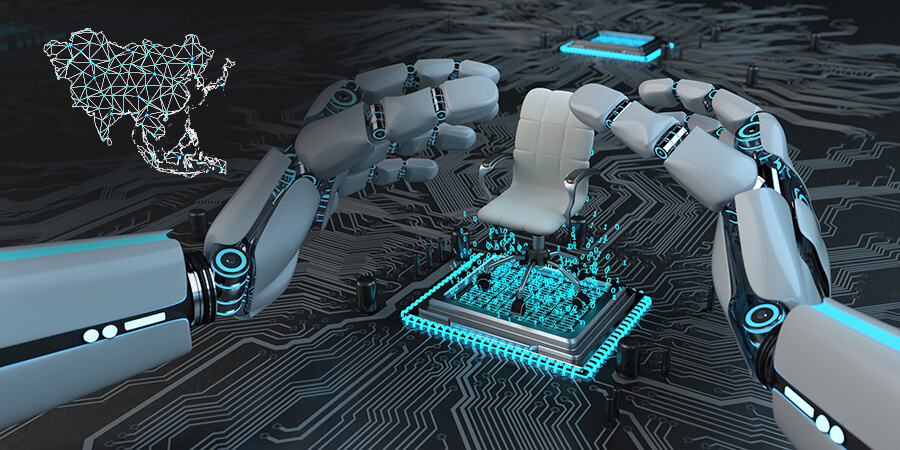Artificial intelligence (AI) can facilitate the abilities of machines, digital computers or computer-controlled robots to perform different tasks that have traditionally required human intelligence. AI allows machines to represent or improve the capabilities of human minds. It can also include natural language processing, speech recognition, machine learning, robotics, deep learning, expert systems and more.
The attention around AI has accelerated as many business owners, entrepreneurs and technology experts have welcomed and embraced the technology. AI enables an organization to function effectively and accurately with little to no actual human supervision. The technology is currently being used in certain businesses to automate tasks such as customer service work, lead generation, quality control, content writing and fraud detection.
Many believe that AI can perform many assignments more proficiently than humans. When it comes to repetitive tasks, AI tools often finish jobs quickly and with fewer errors. Due to the extensive data sets it can process, AI can also provide insights to enterprises regarding operations or functions they might not have been aware of.
According to a Statista survey conducted in 2020 regarding the use of artificial intelligence technology in businesses in Asia Pacific, 62% of respondents said that in 2019, AI was most actively used in IT management in their respective businesses. Further, 11%, the lowest, said that AI technology was being used for legal and compliance purposes in their businesses.
Will AI Cause Job Layoffs in Asia?
A previous study titled "Technology and the Future of ASEAN Jobs," conducted by Cisco and Oxford Economics, examined the effects of AI on workers in the Association of Southeast Asian Nations (ASEAN) six largest economies.
"Over the next decade, innovations in digital technology will present vast opportunities to ASEAN economies to boost their productivity and prosperity. The more widespread adoption of existing technologies, coupled with advances in the use of artificial intelligence (AI) through software, hardware and robotics, has the potential to transform business capabilities," the study explained.
"As a youthful region (half the 630 million inhabitants are aged under 30) with an internationally competitive manufacturing sector and innovative enterprises, ASEAN is poised to take advantage. However, digital transformation will also mean that many of the region's workers face considerable upheaval."
The research model concluded that, by 2028, 28 million fewer workers across these economies will be required to provide the same level of output as today. "This constitutes substantial productivity gains from more widespread technology adoption, which will drive growth and create new demands for workers."
The study also noted that the overall job landscape will look different. For about 6.6 million workers across the ASEAN-6 region, the new technology scenario will render their job roles redundant. To be specific, the agriculture sector will be the primary source of these redundancies. Overall, the research found that there will be 5.7 million net fewer FTE workers in the agriculture sector by 2028 across the six economies.
Current Global Job Reductions
Online marketplace Carousell announced that it was reducing its team to about 10% of its headcount — approximately 110 positions. In November, Indonesia’s GoTo Group — a merger between ride-hailing giant Gojek and e-commerce marketplace Tokopedia — cut a total of 1,300 jobs, or about 12% of its headcount. Both companies stated challenging macroeconomic conditions as the reason for such reductions.
According to Crunchbase data, the launch of ChatGPT on the last day of November punctuated what was, at the time, the largest layoff month of 2022. As an aside, funding for AI startups constituted almost 10% of global startup funding.
In May 2023, United States-based employers confirmed 80,089 job cuts, a 20% increase from the 66,995 just one month prior. This May figure also stands at 287% higher than the 20,712 cuts announced in the same month of 2022, according to the global firm Challenger, Gray & Christmas, Inc.
Google's parent company, Alphabet, also caused a stir after cutting approximately 12,000 people from its workforce. The CEO of Google and Alphabet, Sundar Pichai, emailed Google employees regarding the layoff, saying that he took "full responsibility" for the decisions.
"I am confident about the huge opportunity in front of us thanks to the strength of our mission, the value of our products and services, and our early investments in AI. To fully capture it, we'll need to make tough choices. So, we've undertaken a rigorous review across product areas and functions to ensure that our people and roles are aligned with our highest priorities as a company. The roles we're eliminating reflect the outcome of that review," he explained.
AI is continuously evolving, and its new uses are being discovered every day. Many are firmly convinced that AI can be used to solve many of the world's most pressing problems. From curing diseases to creating efficient transportation systems and providing better access to the internet and education, the potential of AI is immense. This technology has the capability to revolutionize many aspects of society as well as create all-new industries that can provide solutions for various industry problems. How this will affect the traditional employment landscape is yet to be fully seen.





